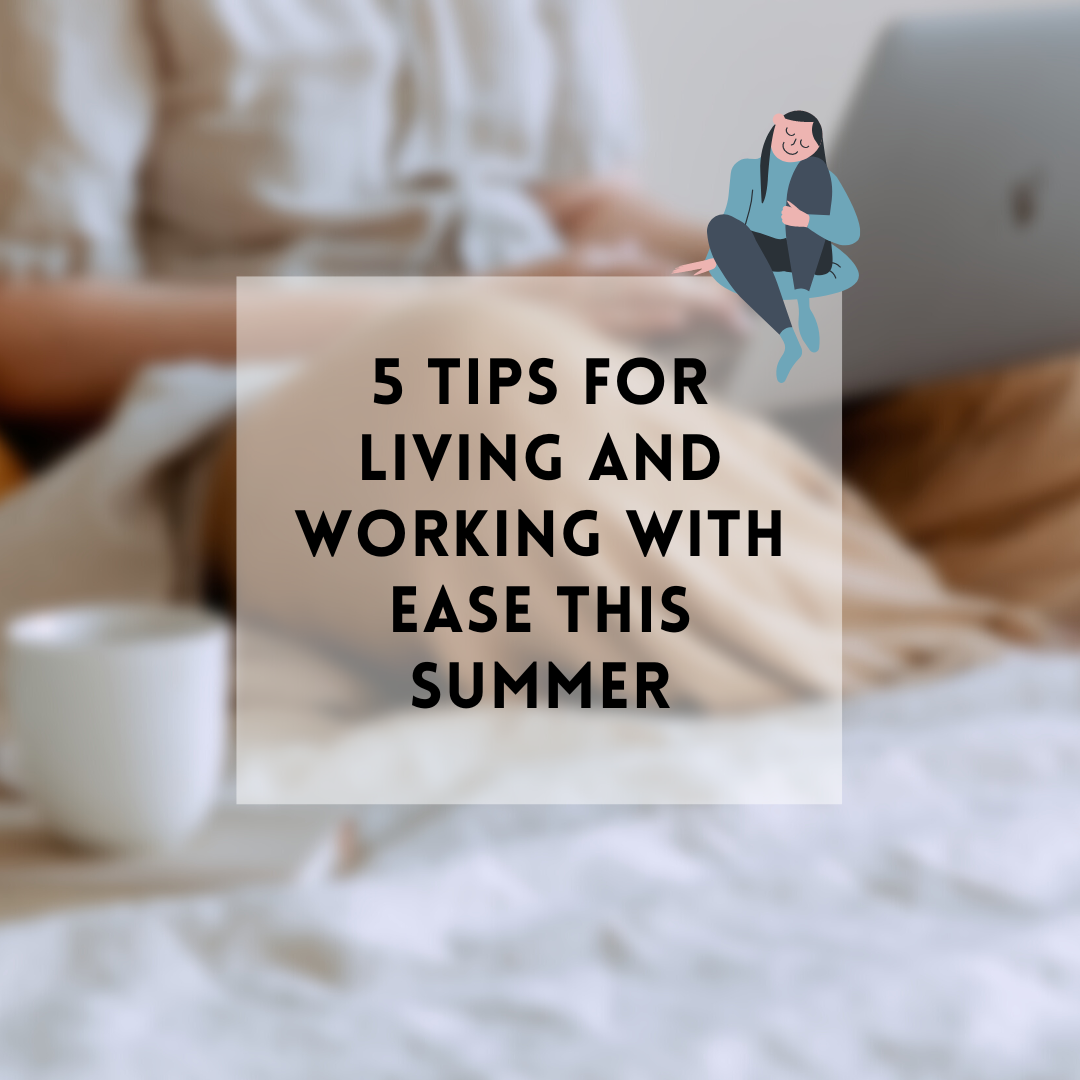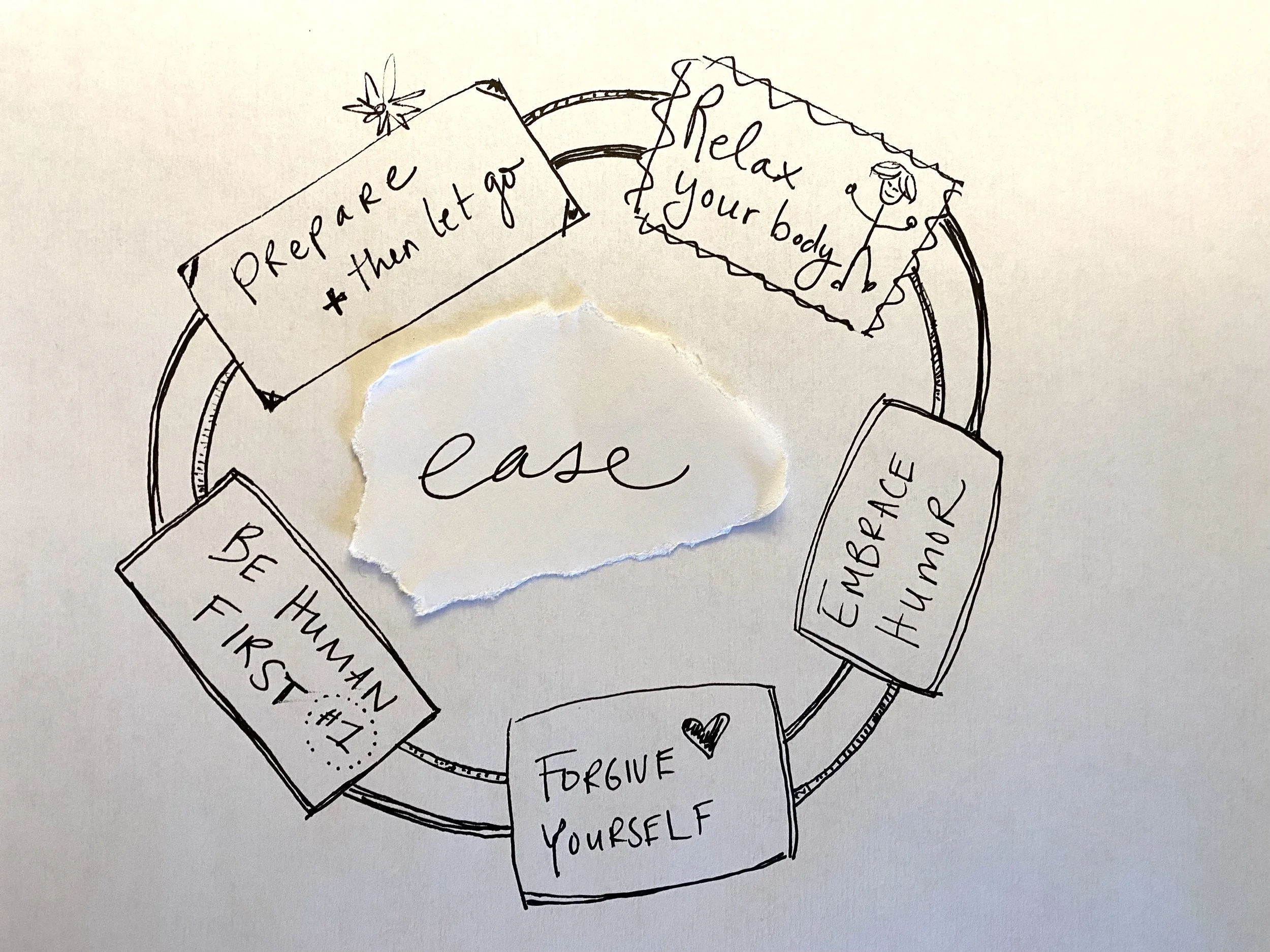5 tips for living and working with ease this summer
“Ease” is my word for 2022, not to be confused with “easy.”
I tend to perceive the opposite of ease as resistance, like the difference between flowing down a river freely versus being stuck in an eddy. There’s definitely merit in doing hard things and finding our edges, but that doesn’t mean life always needs to feel hard.
Thus, I’ve made it my mission to bring more ease into more areas of my life this year. I’ve found that it’s difficult to meet challenges with ease at first, but once you get into the rhythm the attitude is contagious and pays dividends, both personally and professionally.
Here’s what I’ve been practicing every day:
1. Prepare, then let go
We can prepare for what’s ahead to the best of our ability, but at a certain point we need to let go of control. As someone who loves to be in control, I get that this concept is scary. When it comes to my facilitation work, I always do my best to prepare my tools, agenda, meeting space, etc., but I’ve also come to learn that even the best laid plans don’t always work out as intended. What if we accepted those surprises and snags at face value without assigning meaning (like “this is hard,” or “I must be bad at my job!”)? Letting go of control is quite a radial practice, but boy does it do wonders for mental health.
2. Relax your body
Part of my plan to create more ease includes physical outlets for releasing tension. This can be anything that works for you: running, yoga, bubble baths, yelling, guided breathing…the list goes on! Finding an avenue for physical release is a great way to ditch the tensions that tend to build up and cast a shadow over everything else. I suggest that you think about the moments when you tend to tense up: meeting with a certain person, doing a certain task at work, etc. What can you do to prepare in advance or in the moment to bring more ease to your physical body? Sometimes simply remembering to relax your jaw or feel your feet planted on the earth can bring calm into an otherwise tense moment.
3. Forgive yourself
We all need reminders to cut ourselves some slack. To be human is to err, and if you fixate on all of your mistakes — big and small — they’re going to consume you. When I mess something up, whether it’s during a workshop or in my personal life, I like to remind myself that I’m probably the only person who noticed. Most people are too busy thinking about themselves and their own worlds to catch your mistakes. And even if they do notice and call you out on it, you can still acknowledge, apologize, and move on without harboring feelings of shame or self doubt.
If you’re having a hard time moving forward, try entertaining a new train of thought, watch a movie, read a book, or do an activity that will help you switch gears.
4. Embrace humor
I find this to be especially important in the work environment. When I lead workshops, I notice that using humor fosters a sense of lightness among the group. People start to disarm, become more relaxed and have an easier time connecting with one another. Plus, when we direct that same sense of lightheartedness inward, it allows us to be more gentle and forgiving with ourselves.
5. Be a human first.
Leading with kindness will never get old. More often than not, people treated with kindness will also return kindness. Even when that isn’t the case, you’ll spend far less energy swirling out on someone else’s negativity if you stay focused on what you can control (like your own emotions). This doesn’t mean that we shouldn’t have hard conversations or really dig into the merit of an idea. But it does ask that we see people as people first, deserving of kindness and respect, regardless of title or difference of opinion. When we treat people well, they feel safer and become more open. I see this phenomenon regularly in my facilitation work.When my teams feel seen and heard they’re much more engaged in ideation and collaboration, which produces better outcomes for everyone. (Side note: this is just one example of how important it is to help people feel more comfortable in meetings, and there’s more on that here.)
Cultivating ease is certainly a practice, but what better time than summer to embrace a more relaxed mindset? Just like any habit, the more you cultivate it, the more natural it will become. I don’t know about you, but I’m highly interested in living in a world where we’re all freely flowing — rather than fighting — down the river.

